People
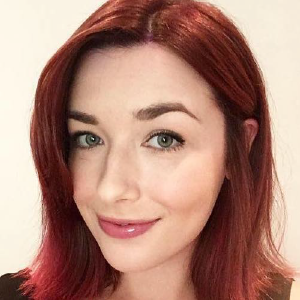
Kerry Louise Apps
Doctoral researcher in Art History - 'Imagining Asia at Ham House' in partnership with the National Trust.
Kerry has an academic background in the social and colonial histories of the early modern period. Her PhD project, in partnership with the National Trust, centres upon the collection of Asian and broader global goods within the seventeenth-century collection of Ham House, Richmond. Before starting her PhD, Kerry was a secondary school teacher in London. She has been actively involved in projects to better the teaching of social, colonial, and global histories of the early modern period, including working with BBC Bitesize, the Schools History Project, the Imperial War Museum, and the Department for Education.
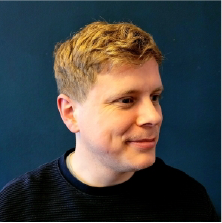
Sam Aylett-Streitberg
Visiting Fellow and Member of the Ferguson Centre for African and Asian Studies – history of museums and empire in the nineteenth and twentieth centuries.
Sam researches the history of museums in the nineteenth and twentieth centuries, with a focus on representations of Empire at city museums. He received his PhD from the Open University in 2020. His monograph, Legacies of an Imperial City, will be published with Routledge in December 2022.
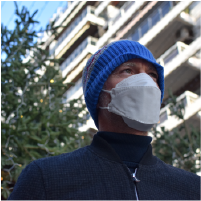
Elton Barker
Professor of Greek Literature and Culture
Elton works mainly on ancient Greek literature, but through his interest in discursive representations of space and place he co-founded Pelagios, a Digital Humanities initiative that has established a lightweight method of linking online resources via geo-annotation. Relaunched in 2019 as a community of practice, the Pelagios Network is a global partnership developing methods and tools for enabling the wider community of researchers and curators to link and map their cultural heritage data. Good examples of mapping the spatial footprint of collections can be found in a series of exhibits developed by the British Library's Locating a National Collection project.

Emma Barker
Senior Lecturer in Art History
Emma Barker’s main research interests lie in eighteenth and early nineteenth-century French art. She also has a long-standing interest in museums, collections and display. She edited and co-authored the Open University textbook, Contemporary Cultures of Display (Yale University Press, 1999).
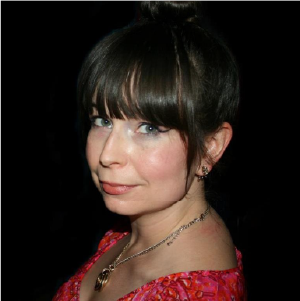
Amy Jane Barnes
Senior Lecturer and Staff Tutor in Art History
Amy has an academic background in art history and museum studies, with a particular interest in how post-1949 art and visual culture from China has been collected, interpreted and displayed in UK museums. Amy is the author of Museum Representations of Maoist China (Ashgate 2012), which is based on her doctoral thesis. She has also co-edited and contributed to several edited volumes, the most recent being A Museum Studies Approach to Heritage (Routledge 2018). Amy has worked in museums and galleries as a curator, researcher and writer, and as an interpretation and audience development consultant in the heritage sector. She is Honorary Curator and Trustee of Woodbridge Tide Mill in Suffolk.
Linda Briggs
Staff Tutor and Lecturer in History
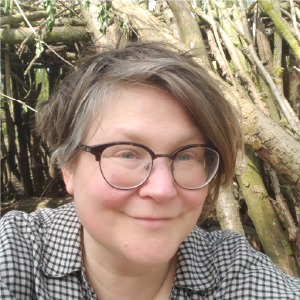
Lindsay Crisp
Staff Tutor and Lecturer in Art History - materiality, text, and fragmentation in contemporary art and culture
Lindsay is an academic in cultural studies with a background in community arts who writes about materiality, text, and fragmentation in contemporary art through the lens of assemblage theory and new media theory. Her doctoral thesis investigated these themes as they arise in Michael Landy’s art event Break Down (2001), in which the artist systematically catalogued and destroyed his possessions.
Steve Conway
Lecturer in Criminology
Steve joined the Faculty of Arts and Social Science in 2021 as a Lecturer in Criminology. His teaching duties are split across several undergraduate Criminology modules.
He's research currently covers three distinct strands. Firstly, I am interested in the insights that can be gained from humanmade objects – particularly those that which are considered obsolete or trash. Secondly, I am collaborating with my colleagues Professor Deborah Drake and Dr Dan McCulloch on complexity theory in relation to social science. Finally, I am working with Professor Louise Westmarland on research focused on policing ethics and integrity.
Veronica Davies
Associate Lecturer and Honorary Associate, Art History
Veronica Davies is an Associate Lecturer who has also worked in the Art History department on temporary lecturer contracts, and continues to contribute to the work of the department in various capacities. A project on British World War II war artists as an OU undergraduate led to her research interest in British and German art and art institutions of the 1940s and 50s. This was developed in her MA dissertation on exhibitions in Britain during World War II and their relationship with modern art, and extended in her doctoral thesis which compared state art policies, institutional practices and exhibition organisation in Britain and Germany between1945-51, and focused in particular on cultural policies in the British-occupied Zone of North West Germany. She has given a number of related conference papers, two of which have been published.
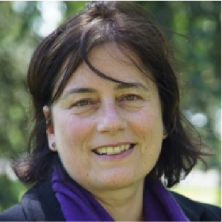
Renate Dohmen
Senior Lecturer in Art History
Renate is working on issues of modernity/(de)coloniality with a focus on the contemporary and the nineteenth century. She considers the work of Canadian First Nations artist Kent Monkman in view of the Vizenorian figure of the postindian, questions of appropriation and care and the representation of indigeneity in public media and museum collections. She is also engaged in a project concerning amateur fine art exhibitions in British India supported by the Leverhulme Trust. These exhibitions constitute a unique, grass-roots response to the lack of art institutions catering for British residents in colonial India and demonstrate the vast interest in sketching and painting the sights and people of India on the part of British officials and their families. Many examples of their work can be found in the British Library and the V&A. The project examines the coloniality of the visual in relation to Victorian narratives of progress and improvement, the rhetoric of aesthetic democracy and notions of culture, civilization and the cult of the civic with a focus on issues of amateurism, gender and race. It also explores work by Indian artists including the photographic oeuvre of Ram Singh II, Maharaja of Jaipur and amateur photographer par excellence, probing his intriguing and subversive photographic oeuvre on display at the Maharaja Sawai Man Singh II Museum in the City Palace of Jaipur.
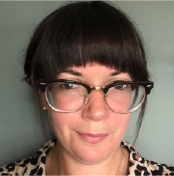
Katie Donington
Senior Lecturer in Black, African & Caribbean History
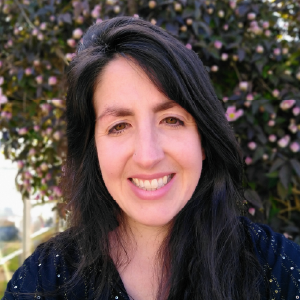
Jasmine Hunter-Evans
Staff Tutor and Lecturer in Classical Studies - classical reception, materiality, fragmentation, decolonisation
Jasmine works in the field of classical reception studies, with a focus on the ways in which ancient Rome was perceived, debated and reimagined across the nineteenth and twentieth centuries by artists, writers, historians and politicians. Her first monograph examines Rome’s position in British imperial rhetoric, cyclical history, Catholic cultural discourse, and Welsh nationalism, through the works of the artist, poet and essayist David Jones (1895-1974). Recently, she has been working on inscriptions and considering the materiality of works which cross boundaries between visual art and poetry. She is also currently writing on Sappho and fragmentation as part of the development of the new MA in Classical Studies.
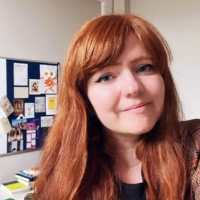
Steph Holton
Staff Tutor and Lecturer in Classical Studies
Steph is a classicist with a research specialism in early Greek thought. She is particularly interested in ancient ideas about dreams, body and soul, and the afterlife. Through her outreach and pedagogy projects, she works closely with museums to deliver creative object-based workshops for all ages on Ancient Greeks, Roman Britain, and Ancient Egypt. She also recently designed and curated her first exhibition PSYCHE: Where does the soul go? in 2024, introducing over 20000 visitors to the ancient Greek soul.

William Kynan-Wilson
Senior Lecturer in Art History
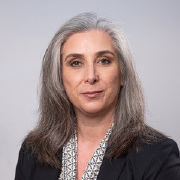
Anna Perceval
Doctoral researcher in Art History - conceptualisation of absence and remembrance in twenty-first century art.
Anna is a PhD student interested in visual strategies that communicate abstract concepts. With a focus on materiality, spatial and social contexts, Anna is working interdisciplinary to examine processes through which memory concepts are communicated and received via installation and visual art.
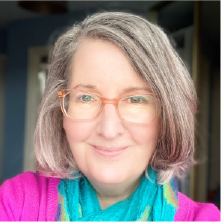
Heather Richardson
Staff Tutor and Senior Lecturer in Creative Writing
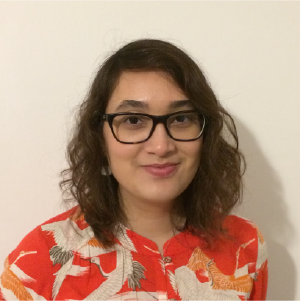
Amanda Sciampacone
Staff Tutor and Lecturer in Art History – nineteenth-century British art and visual culture, history of museums, collections and the British Empire, history of medicine and science
Amanda is an art historian with research and teaching interests in the history and development of museums and galleries, the imperial and colonial foundations and legacies of museum collections, and inclusive and decolonial approaches to curation. In 2018, she curated the exhibition Art, Air and Illness at the Lancester Research Gallery at Coventry University, which explored how art and science shape ideas about the relationship between human health and the environment. She has taught modules focused on experiential learning and object handling in major cultural and heritage institutions, including the British Museum, National Gallery, Victoria and Albert Museum, Waddesdon Manor, and Wellcome Collection.
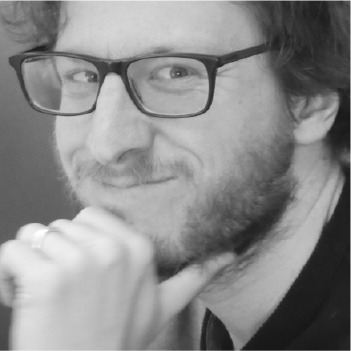
Samuel Shaw
Lecturer in Art History
Sam works predominantly on art and visual culture in Britain during the nineteenth and early twentieth centuries, with a particular specialism in the foundation and operation of commercial galleries in London at the turn of the century. More recent research has dealt with wider issues surrounding empire, the environment, and the representation and display of African animals in Britain.
Sam has co-curated several exhibitions, including: From Bradford to Benares: The Art of William Rothenstein (Bradford Museums, 2015), Reframing the Wild: Humans, Animals and Art, 1750-1950 (Wolverhampton Art Gallery, 2019) and Nature’s Art: Gardens in Leicester and Beyond (Leicester Museums, 2022). He is the author of Zebra (Reaktion, 2018), William Rothenstein and the Cosmopolitanism of the British Art World, c.1890-1935 (Peter Lang, forthcoming), and co-editor of Edwardian Culture: Beyond the Garden Party (Routledge, 2017).
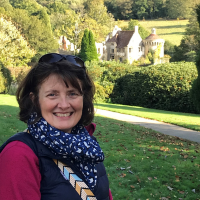
Clare Taylor
Professor of Art History and Material Cultures
Clare’s work focuses on the material culture of the interior. Her current research project investigates the shifting role of Gilt leather in the interior, and has encompassed fieldwork at heritage sites across the UK and Ireland including with the National Trust, National Trust for Scotland and The Office of Public Works. Clare was previously a curator including with Manchester Art Gallery, Aberdeen Art Gallery, and English Heritage where her roles included work on exhibitions and the redisplay of the royal nurseries at Osborne House. She was also an academic consultant to the three part OU/BBC series, Secrets of the Museum.
Margit Thøfner
Senior Lecturer in Art History
Margit’s research interests are focused on early modern Europe and include ephemeral architecture and processional pageantry, including the design and use of festival floats. Margit also works on the relationship between art and music and on how art-historical and musicological approaches can be brought into fruitful dialogue.

Robert Wallis
Staff Tutor and Lecturer in Art History - archaeology and anthropology of art and religion, prehistoric and early medieval visual and material culture, art and archaeology of falconry, re-presentation of the past in the present
Robert’s object-based research in museum collections (e.g. British Museum) on the art and archaeology of falconry has resulted in publications in Antiquity (2014), The Archaeological Journal of The Royal Archaeological Institute (2017) and Cambridge Archaeological Journal (2020). His recent publications on the re-presentation and reproduction of prehistoric art in exhibitions include a critical examination of the world-touring ‘Lascaux III’ show in the volume Visual Culture, Heritage and Identity: Using Rock Art to Reconnect Past and Present (Archaeopress 2021). Robert’s publications on the uses of prehistoric monuments and concerns over human remains in museum collections by today’s Pagans include a monograph (Shamans/neo-Shamans: Ecstasy, Alternative Archaeology and Contemporary Pagans, Routledge 2003) and co-authored book (Sacred Sites, Contested Rites/Rights: Pagan Engagements with Archaeological Monuments, Sussex Academic 2007). He is currently editing an anthology for Bloomsbury entitled The Art and Archaeology of Human Engagements with Birds of Prey: From Prehistory to the Present.
Ben Wiedel-Kaufmann
Staff Tutor and Lecturer in Art History
Ben is an art historian whose current research is concerned with exterior mural paintings made in London across the 1970s and ’80s and their interrelations with left wing politics. While largely focussed on a mode of public art made and viewed outside the contexts of museums and collections, Ben’s research remains attentive to the prominent roles these institutions have played in shaping the rituals, canons and methods of art history. Ben has worked in a range of capacities on the production of exhibitions and has designed modules offering critical introductions to museology for art historians and anthropologists.
